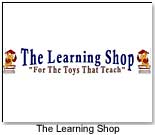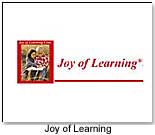School supplies are a part of an ever-changing and challenging market. What was a requirement last year may not be this year. As laws, trends, and safety in public buildings impact supply and demand, focus shifts from essentials to nonessentials and back again.
 Todd Merryfield, president of The Learning Shop, a six-store chain in Wisconsin, believes that budget cuts have left little money for supplemental and decorative materials. "The ´No Child Left Behind´ initiative basically forces the classroom teacher to teach to the test. There is no room for innovation or experimentation in today´s classroom."
Todd Merryfield, president of The Learning Shop, a six-store chain in Wisconsin, believes that budget cuts have left little money for supplemental and decorative materials. "The ´No Child Left Behind´ initiative basically forces the classroom teacher to teach to the test. There is no room for innovation or experimentation in today´s classroom."
Teachers often invest their own money. "The sales we have are, for the most part, to teachers who make the personal decision that they will enjoy their profession more with the added tools."
Individualized service is the key to high sales. A retailer must sell and understand the customer´s needs to find a suitable item. A sale may not be as simple as grabbing something off the shelf. Merryfield says some requests are "wild goose chases" that lead to finding a publisher willing to create the product.
"The rainbow of products available to educators makes it extremely difficult to stock everything. Each district has a different philosophy. Within a district, often there are differing philosophies between schools. Where it really gets interesting is when a teacher operates completely outside the norm of a given school. The next wrinkle is that each student learns in a different way, and we are often called upon to locate products that are highly specialized," Merryfield explains.
Merryfield comments, "The wild card in the educational supply industry is the recent acquisition of McGraw-Hill Children´s Publishing, which is the largest supplier, by School Specialty. Overnight our biggest competitor became our biggest supplier."
The Learning Shop maintains an elaborate website to generate in-store traffic, but the majority of their sales are off the Internet. Some costumers use their website to research a product and complete the purchase in person with printouts in hand.
 Debora Macy, owner of Joy of Learning, a specialty store for parents who educate their children at home, caters only to a clientele on the Internet. "Selling on the Internet is something you have to work at," she remarks. "You need to find similar businesses that you can advertise your link from and place your website address on the search engines so you can be found. In website design the key is to place the products that the customer is looking for up front. You do not want to have too busy of a website. Keep it simple and easy to use. Avoid pop-ups."
Debora Macy, owner of Joy of Learning, a specialty store for parents who educate their children at home, caters only to a clientele on the Internet. "Selling on the Internet is something you have to work at," she remarks. "You need to find similar businesses that you can advertise your link from and place your website address on the search engines so you can be found. In website design the key is to place the products that the customer is looking for up front. You do not want to have too busy of a website. Keep it simple and easy to use. Avoid pop-ups."
She still uses paper advertising to reach home schools and recommends having a newsletter that can be emailed on a regular basis. Macy is a consultant for parents new to home schooling. She reiterates the importance of service tailored to the individual and instruction tailored to the child´s interests. "They need information on how to start, what programs to use, and how much time it takes. I direct them to home school resources and make sales in the process."
Joy of Learning averages about 200,000 sales per year including catalog customers. Macy depends on home school curriculum and their best-selling phonics programs Sing Spell Read & Write and The Phonics Game.

